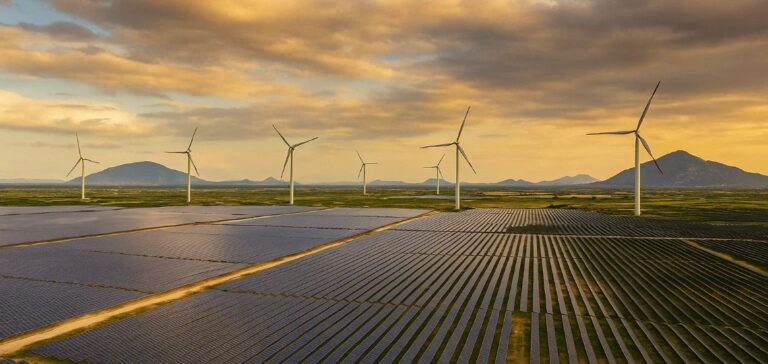Up to 30% of energy consumption by data centres in Southeast Asia could be supplied by renewable sources such as solar and wind by 2030, without requiring battery storage. That is the conclusion of a report published by energy think tank Ember on May 27. The study calls for policy reforms to align regional digital growth with energy objectives.
Electricity demand rising rapidly
Ember’s report highlights accelerating development of digital infrastructure across six ASEAN economies: Indonesia, Malaysia, the Philippines, Singapore, Thailand and Viet Nam. These countries currently account for 2.9 GW of planned data centre capacity. The expansion of the Information and Communication Technology (ICT) sector is significantly increasing power demand in a region still heavily reliant on coal and gas.
Malaysia faces the highest exposure
According to Ember, Malaysia will experience the fastest growth in electricity demand from data centres. It is expected to rise from 9 TWh in 2024 to 68 TWh in 2030, representing 30% of the projected national consumption, surpassing Singapore’s total electricity use in 2023. Associated emissions could reach 40 MtCO2e, seven times current levels, placing Malaysia at the top of the region for data centre-related emissions.
Pathways identified without storage dependency
The study notes that wind and solar could meet a third of data centre electricity demand by 2030 without requiring battery storage, often viewed as a barrier to clean energy adoption. Ember considers this target achievable with strong political support, improved energy market access, and coordinated infrastructure planning.
Political framework needs strengthening
Currently, only large technology companies can secure renewable electricity through long-term Power Purchase Agreements (PPAs). Ember recommends expanding access to more flexible mechanisms such as virtual PPAs and green tariffs, enabling smaller operators to procure clean electricity sustainably.
“ASEAN’s booming data centre industry risks derailing energy transition goals without urgent measures,” said Shabrina Nadhila, energy analyst at Ember. “Prioritising solar and wind, supported by solid policies and regional collaboration, would allow digital growth without deepening fossil fuel dependence.”






















